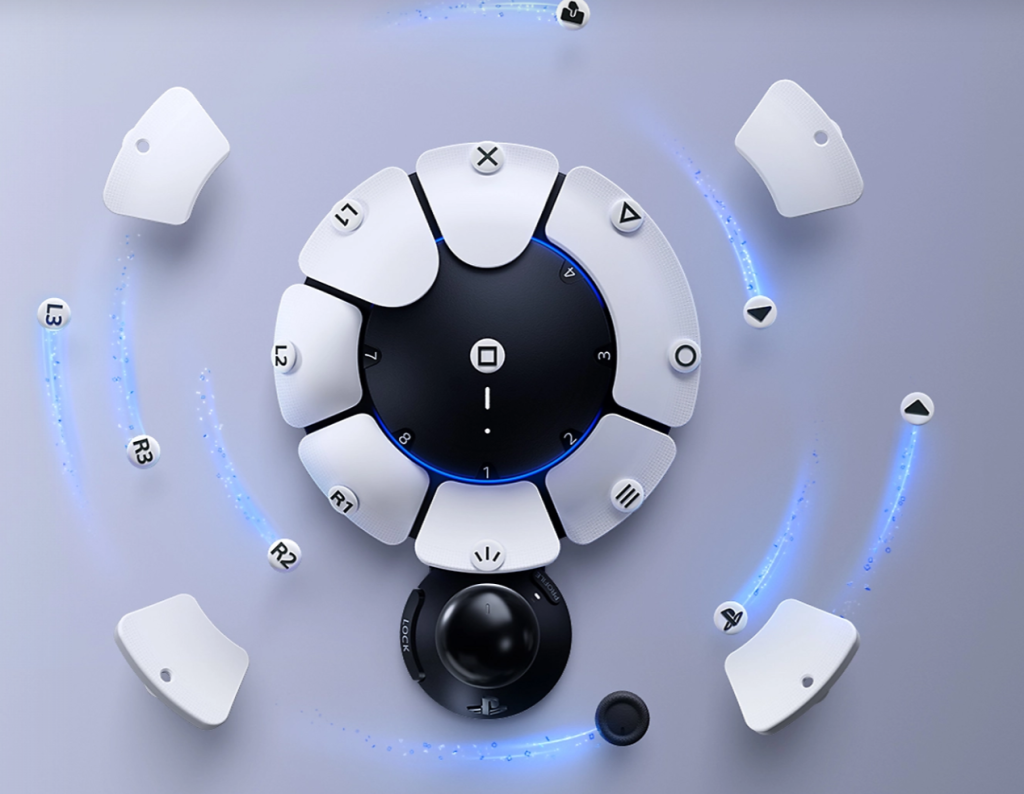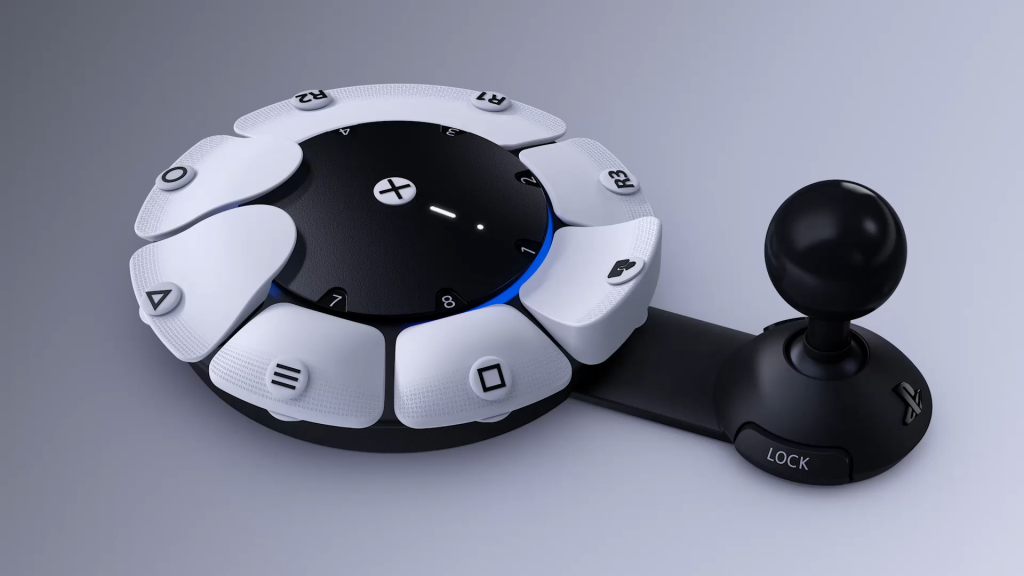Introduction
The PS Access Controller by Sony, is a PlayStation 5 controller designed to enhance gaming accessibility. This controller aims to provide a more convenient gaming experience for players with special needs, helping them overcome the challenges of traditional controllers.
Key Features of PS Access Controller
- Modular Design
- Programmable Profiles
- Compatibility with Multiple Assistive Devices
Feature1: Modular Design
The modular design of the PS Access Controller is a standout feature that enhances accessibility by allowing users to customize the placement, size, and angle of buttons and joysticks according to their individual needs. This approach significantly reduces operational barriers for players with limited hand strength or dexterity. By focusing on removing environmental barriers rather than altering the individual, this design aligns with the social model of disability, which emphasizes that disability is created by societal barriers rather than individual impairments. Additionally, the modular design can be seen through the lens of the medical model of disability, as it provides a form of compensation by allowing players to adjust the controller to their specific functional requirements. Furthermore, it supports the biopsychosocial model of disability by addressing the interplay between biological, psychological, and social factors, creating a personalized and adjustable gaming experience that enhances overall satisfaction and engagement.

Feature2: Programmable Profiles
The PS Access Controller’s support for creating and saving multiple programmable profiles offers a high level of customization, allowing players to switch configurations quickly based on different games or scenarios. This feature empowers players to adapt the controller to their needs, which aligns with the social model of disability by reducing limitations imposed by standardized control schemes and promoting independence. It also fits within the medical model, as these programmable profiles act as a therapeutic tool that adjusts the controller’s responsiveness to cater to various functional needs, making gameplay more accessible. From the perspective of the biopsychosocial model, programmable profiles enhance not only physical usability but also boost players’ confidence and psychological satisfaction by allowing for seamless adaptation to different gaming contexts, thus supporting social interaction and overall well-being.

Feature 3: Compatibility with Multiple Assistive Devices
The compatibility of the PS Access Controller with various assistive devices, such as joysticks, switches, and sensors, greatly expands its usability for players with specific needs. This feature directly supports the social model of disability by addressing and overcoming the barriers posed by traditional devices, enabling users to integrate familiar assistive technologies into their gaming experience. This compatibility also reflects the medical model, as it allows assistive devices to supplement or replace lost functions, such as using a foot pedal switch in place of manual controls, thereby enhancing the feasibility of gaming for those with physical limitations. By considering the biopsychosocial model, the controller’s compatibility with multiple devices not only meets physical needs but also takes into account the user’s social and psychological dimensions, reducing anxiety associated with learning new equipment and enhancing the sense of control and enjoyment in gaming.

Conclusion
The PS Access Controller’s modular design, programmable profiles, and compatibility with multiple assistive devices work together to reduce environmental barriers in gaming, providing a personalized, flexible, and inclusive experience. These features embody the principles of the social, medical, and biopsychosocial models of disability, reflecting a comprehensive approach to accessibility. By recognizing and addressing the diverse needs of players with disabilities, the PS Access Controller not only enhances individual gaming experiences but also contributes to a more inclusive gaming community.
References
https://www.playstation.com/en-us/accessories/access-controller
